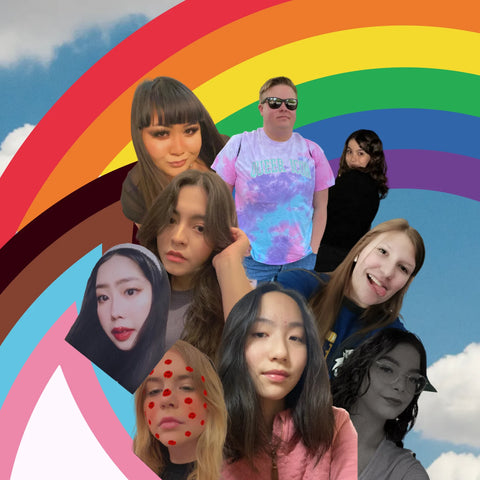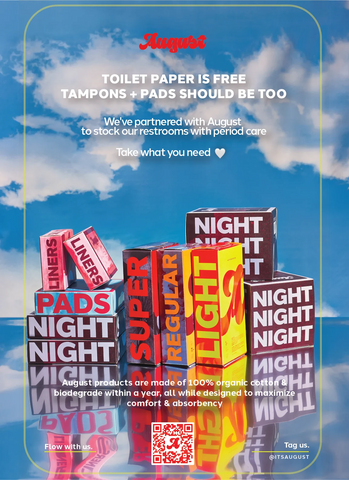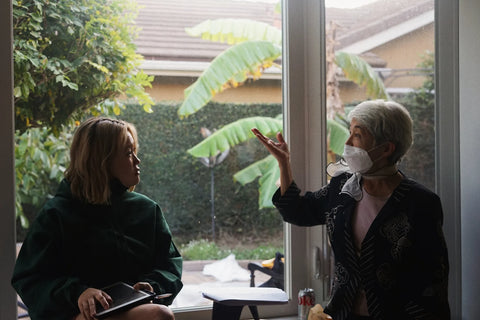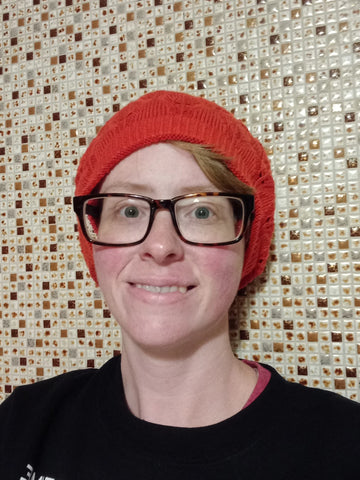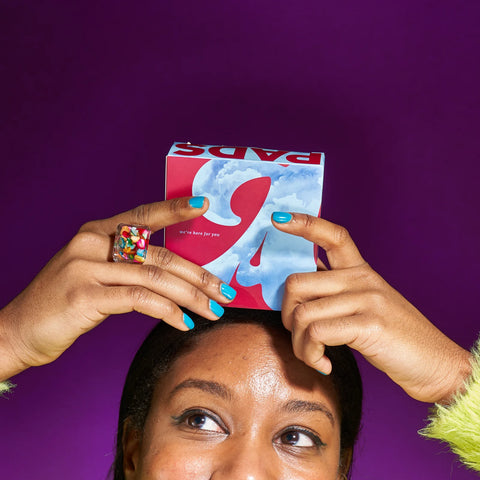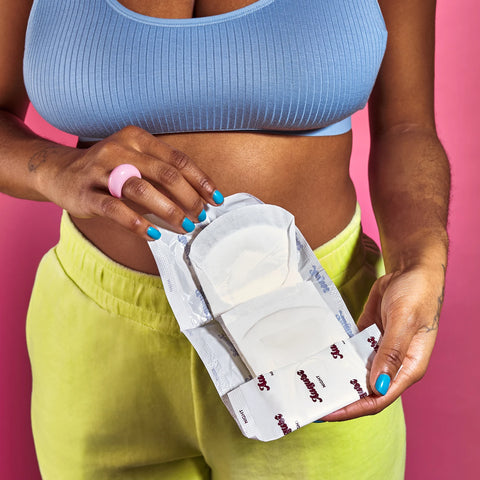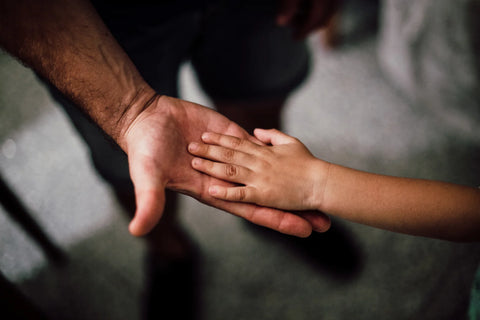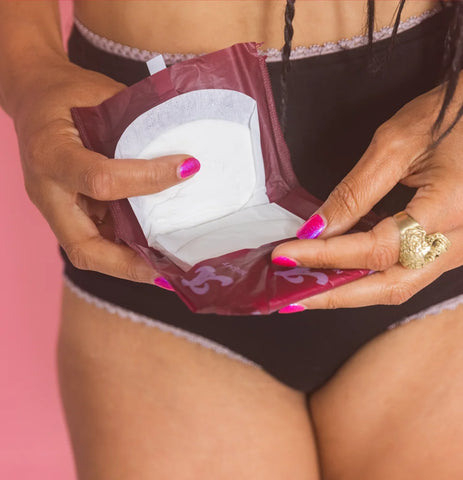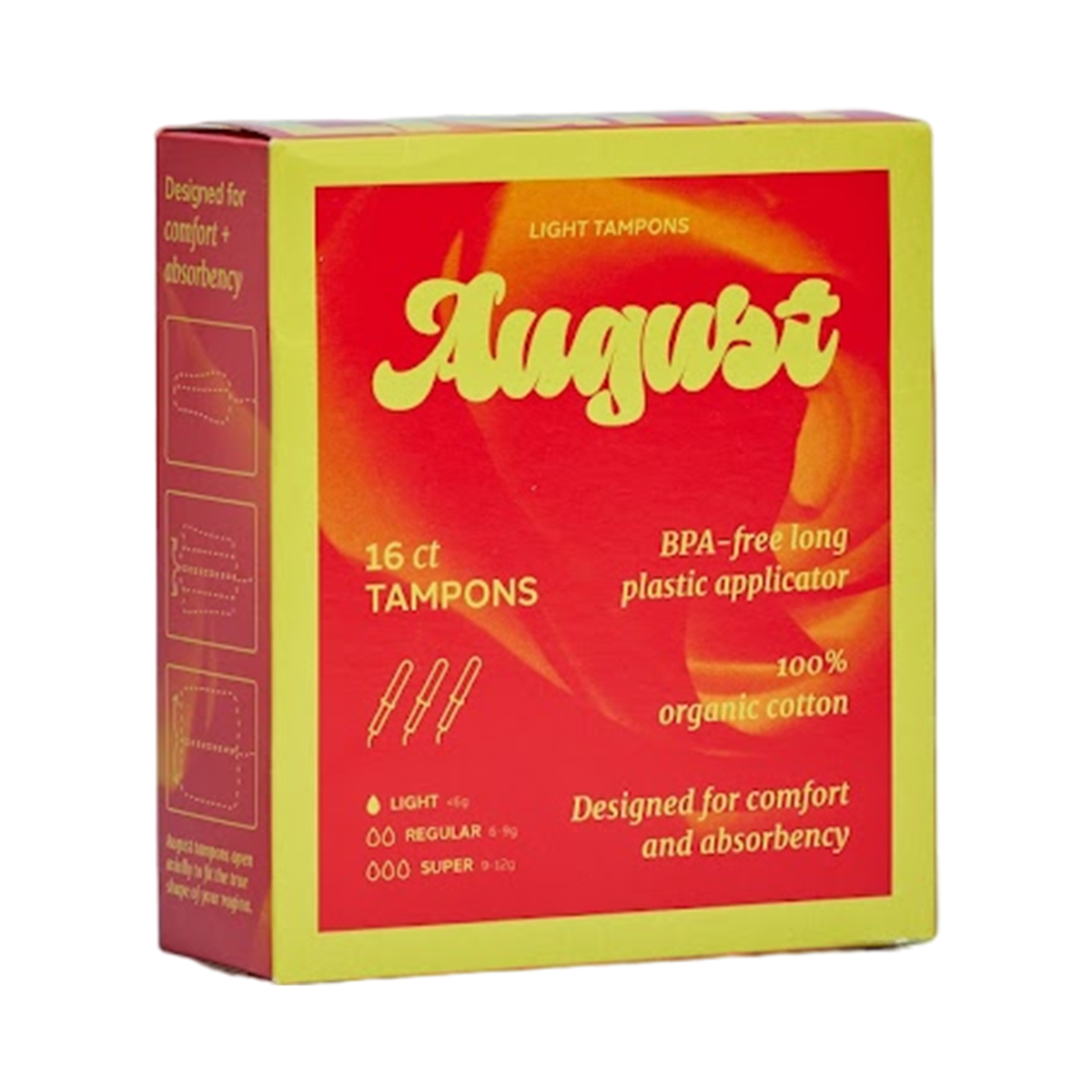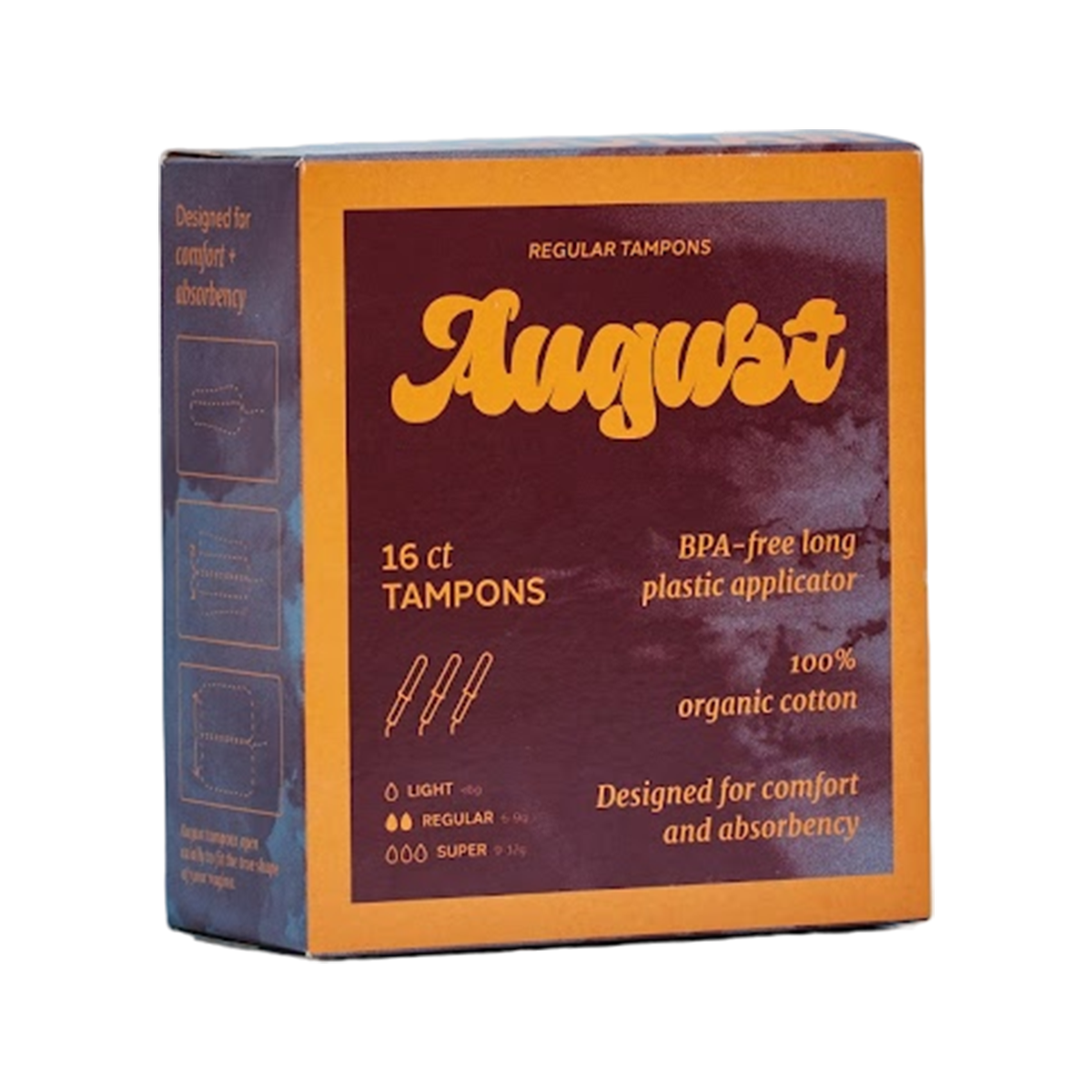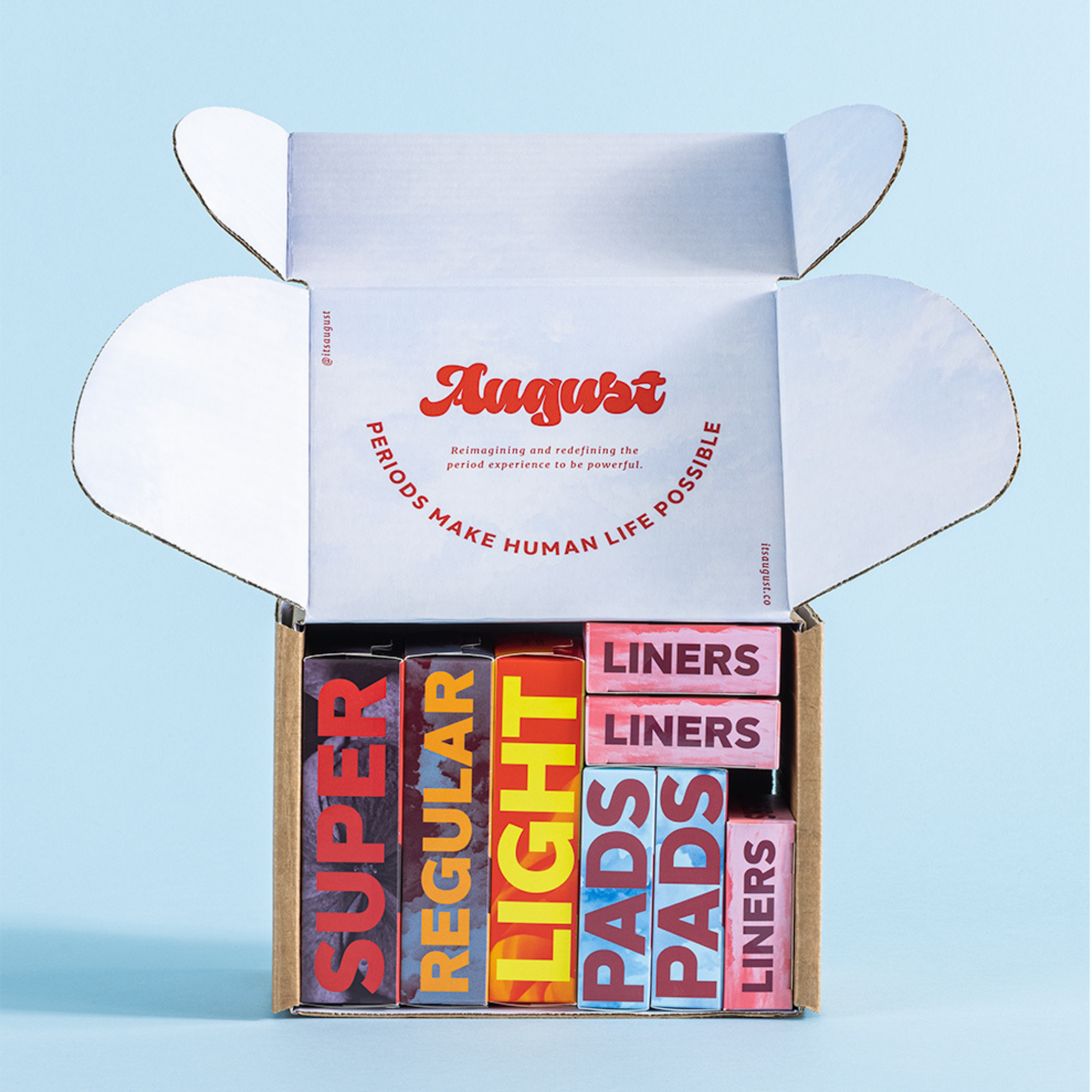August is pro-abortion.
We say pro-abortion and not pro-choice because saying “choice” allows for the other side to claim the side of life. August is pro-abortion because abortion is a form of health care that can save lives.
In addition, we must consider the many people who lack access and don’t actually have choices. As you’ll read further on, for many people in the U.S., abortion isn’t a matter of choice due to low-income, racial background, or other systemic societal reasons.
When the news broke…

When news broke about the overturning of Roe v. Wade, aka our constitutional right to abortion and reproductive choice and bodily autonomy, we at Team August were all heartbroken and furious by the decision of the U.S. Supreme Court.
We held space on our socials and told everyone to come back for more resources and information when they were ready.
We hope you’re ready to join us in the fight for our fundamental rights.
Keep reading for an overview of Roe v. Wade and the history of abortion in America, plus a list of informational resources that include:
- How to get access to birth control, abortions, NOW
- How to productively speak up against the Supreme Court and your local government's decisions
- Great accounts to follow (health care providers, activists, etc.)
- And other ideas for you to stay engaged & enraged with this turn of events!
A brief overview of the U.S. Supreme Court’s recent decision to overturn Roe v. Wade
The Supreme Court’s decision to overturn Roe v. Wade ended the constitutionally protected right to abortion after nearly 50 years.
Back in January of 1973, the Supreme Court ruled to decriminalize abortion nationwide based on the Roe v. Wade case, giving people the right to access abortion legally all across the country. It allowed for patients to seek out the health care that they needed without fear.
In the last 49 years since then, the right to abortion still didn’t guarantee access to abortion. There were many cases of systemic racism and discrimintaiton making abortion less easily accessible for many people.
– statement from Planned Parenthood
Abortions don’t exclusively affect cis-women. Trans and nonbinary folks need abortion access as much as anyone else with a uterus. According to a recent study from the Guttmacher Institute, an estimated 462 to 530 trans and nonbinary people received abortion care in the U.S. in 2017.
In addition, anyone with a penis who is a sexual partner to someone with a uterus should also be reflecting on what a lack of access to abortion could mean for their future.
How does the decision to overturn affect us?

The TLDR is that this decision will lead to bans on the procedure in about half of the states.
By the afternoon of Friday June 24th, the same day that the SCOTUS decision was announced, at least 10 states had banned abortion. Up to 16 more states are predicted to follow suit. This is all thanks to ‘trigger laws’ (aka laws that were designed to ban abortion almost immediately after the decision was announced).
Keep track of which states still legally allow for abortions HERE.
– Alexis McGill Johnson, the president of Planned Parenthood
It’s important to note that prohibiting abortions will have effects on the financial capacities of many people with uteruses who are expected to see through the birth.
Being pregnant costs money. Giving birth costs money. And raising a child costs A LOT of money. Unfortunately, being a parent is often a burden placed on the person who gave birth while the other partner can more easily escape the situation.
Whether you are in a state that will enact abortion bans or not, it’s imperative that you think about this decision with an intersectional lens.
Banning abortions doesn’t mean abortions won’t happen. It means SAFE abortions will be suspended in approximately half of the United States. It means an increase in mortality rates among our most marginalized populations. (Additional sources: Vox.com, NCBI, Northwestern, AfroNews).
How did we get to this point?

Many legal powers currently in American courts see abortion as a “profound moral question”, according to Justice Samuel Alito.
Although the decision wasn’t unanimous across the court, “all three of former President Trump’s appointees were in the majority in the 6-to-3 ruling."
– the three Liberal justices, Stephen Breyer, Sonia Sotomayor, and Elena Kagan.
Abortion was actually outlawed in America until the mid-1800s. Before then, it was an integral part of colonial life. Back then, of course, medicine looked very different so it was herbs and other medications being used to induce abortion.
Since forever ago, however, skilled midwives, nurses, and other unlicensed health care providers were trusted to provide this type of health care. Notably, about half of the people providing reproductive care were Black women, and many other Indigenous and White women.
It was Black women who were first affected by the introduction of abortion laws since colonial powers had societal control over Black bodies. This remained true once slavery was abolished in 1865.
When the medical field became male-dominated at around the time of the Civil War, a movement was started to push state governments to outlaw abortion across the board. By 1910, abortion was banned nationwide. However, similar to the future of abortions in the U.S., wealthy, White people would be able to avoid the law and access aboriton while other people could not.
The 1960s brought about the fight for bodily autonomy in a new, liberalized way. Towards the end of that decade, 11 states had legalized abortion and in 1973 the Supreme Court established a nationwide legal status for abortion in rhe landmark Roe v. Wade case.
Fast forward 49 years and we’ve officially regressed.
You can read more details about the history of abortion in the United States from Planned Parenthood.
What are our next steps?
We fight on.
President Joe Biden clearly stated that his administration would defend those who chose to travel to other states that allowed abortions saying, “this decision must not be the final word”.
1) How to get access to birth control, a safe abortion, financial assistance, or free legal advice NOW

Birth Control/Abortion Finders:
- Three For Freedom
- Ineedana.com
- plancpills.org
- Planned Parenthood has provided these 2 outreach tools for more information on abortion in your area: 1-800-230-PLAN & Abortionfinder.org
Financial Assistance:
Free Legal/Medical Advice:
- Reprolegalhelpline.org
- Call or Text the Miscarriage and Abortion Hotline at +1 (833) 246-2632
2) How to make an impact and speak out.

- Find your local protests and stay safe when demonstrating!
- Contact your local legislators. Calling them directly is the best way to have your voice heard.
- Discuss the implications with your social networks and come at those conversations with statistics, facts, and accounts of lived experiences.
- Reassure the young people in your life that we’ve got work to do, but we’ll do it together.
- Speak to your employers about the policies the can (and should) be put in place to protect anyone with a uterus who might need to access birth control and/or safe abortions moving forward.
3) Donations

In American society, monetary support is necessary to push for change. Some top tips about donating are:
- One-time donations are great but consistent, regular donations provide long term support. Consider setting up a $10/mth regular contribution.
- Similarly, national funds do great work but if you want to see change in YOUR community, look into the local branch of that fund.
- Choose the organization you donate to with an intersectional lens so that the most marginalized people are being supported and uplifted as much as other people who have certain societal privileges that assist them.
Here is a long list of organizations to consider donating to!
4) Great accounts to follow (health care providers, activists, etc.)

The following 3 August Medical Board Advisors stand out to us for their health care provider POVs and unapologetic stances on reproductive rights:
And some other accounts:
- @plannedparenthood is an obvious choice for reproductive rights info! Also follow your local branch.
- @theunbiasedscience does a great job breaking down statistics and debunking science and health-related misconceptions!
- @abortionfinder for reminders that a comprehensive directory of verified abortion service providers in the U.S. does currently exist despite changes to state laws.
If you see any other accounts that you love to get vetted information about reproductive health from, send them to us via DM!
From all of us at Team August, we’re sending LOVE and FUEL for the fire as we continue to fight for our reproductive freedom.
Over the past year we had a responsibility as a brand and team of passionate people with a platform to speak up about protecting these fundamental rights.
We aim to stay engaged in the fight, standing strong in our community.
There’s work to be done – so we’ll continue to share resources on ways that you & your communities can take action moving forward. Especially for those of you in the U.S. States that will be most affected by this.
We’re feeling those big feels right alongside you. – Team August
P.S. If you’re looking to vent about anything reproductive-related (periods, rights, relationships, etc.)...
Come join the Inner Cycle community!
Our Inner Cycle community space is always here for you whether you need to vent, feel solidarity or are looking for ways to support. Here are a few takeaways from the chats we had about Roe v. Wade:
- “I feel like we’re not progressing the way we should… why r other countries giving their citizens more rights and liberties, while we’re just moving backwards"
- “Abortion rights are also an issue for all people with uteruses and not just women ❤️ today is a hard day for all of us”
- “Today I’m grateful we have this support space!”
- “i’m a brit, but just read about the supreme court overturning roe v wade and i feel so disheartened by it, this just sucks”
- “Honestly thought it wasn't going to happen... There's zero logic to it”
- “The roe v wade is like an umbrella! It will affect everything and everyone!”


